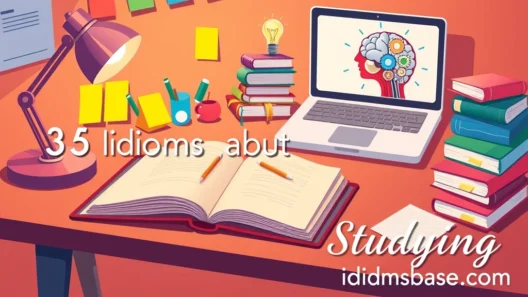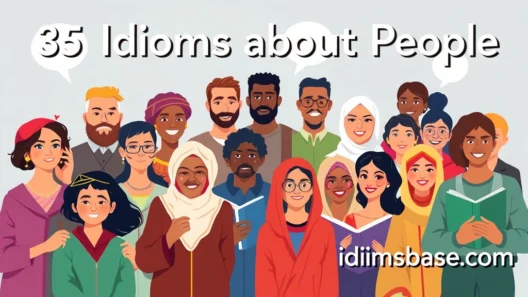You know, there's something truly magical about looking up at the night sky. Those twinkling lights, so far away yet so captivating, have inspired humanity for millennia. From ancient myths to modern science fiction, stars have always held a special place in our hearts and imaginations. It's no wonder, then, that they've found their way into our language, giving us a galaxy of wonderful idioms!
Idioms are those quirky phrases where the meaning isn't obvious from the individual words. They add color, character, and a whole lot of fun to our conversations. And when it comes to stars, these idioms often talk about dreams, destiny, fame, and even just simple wonder. Ready to explore a constellation of starry phrases? Let's dive in!
A Glimpse into the Cosmic Lexicon: 35 Star-Themed Idioms
Get ready to light up your vocabulary! Here are 35 fantastic idioms about stars, complete with their meanings and how you can use them.
-
Wish upon a star: To make a wish, hoping it will come true.
- Example: "I wished upon a star that I would get into my dream university, and it came true!"
-
Reach for the stars: To aim for a very difficult or ambitious goal.
- Example: "Don't be afraid to reach for the stars; you're capable of amazing things."
-
See stars: To feel dizzy or lightheaded, often after a blow to the head.
- Example: "After hitting my head on the low ceiling, I literally saw stars for a moment."
-
Star-crossed lovers: Two people who are in love but are destined to have bad luck or a tragic end.
- Example: "Romeo and Juliet are the ultimate star-crossed lovers."
-
Born under a lucky star: To be naturally lucky or fortunate.
- Example: "She always wins raffles; she must have been born under a lucky star."
-
Thank your lucky stars: To be grateful for good fortune or for avoiding misfortune.
- Example: "You should thank your lucky stars you didn't get caught in that traffic jam."
-
Have stars in one's eyes: To be optimistically enthusiastic or romantically infatuated.
- Example: "He's just started his new business, and he's got stars in his eyes."
-
Look at the stars: To contemplate or wonder about the vastness of the universe; to dream.
- Example: "Sometimes, it's good to just lie back and look at the stars, putting things into perspective."
-
The stars are aligned: A situation where everything seems to be perfectly in place for success.
- Example: "With the new funding and the perfect team, the stars are aligned for our project."
-
A star is born: Used to describe the emergence of a new talent or celebrity.
- Example: "After her incredible performance, everyone knew a star was born."
-
Shoot for the stars: Similar to "reach for the stars," meaning to aim for the highest possible achievement.
- Example: "Don't just aim for good; shoot for the stars!"
-
Written in the stars: Believed to be predetermined by fate or destiny.
- Example: "Their meeting felt like it was written in the stars."
-
To be a guiding star: To serve as an inspiration or a moral compass for others.
- Example: "Her unwavering optimism was a guiding star for the entire team."
-
To have a star turn: To give an outstanding, memorable performance.
- Example: "The young actor had a star turn in the school play."

-
To be on a star diet: To eat very little, often to maintain a slim figure (less common now).
- Example: "She claimed to be on a star diet before the fashion show."
-
To be out of one's star: To be unlucky (less common).
- Example: "He seemed to be out of his star during the entire competition."
-
To be star-struck: To be overwhelmingly impressed or awestruck by a celebrity.
- Example: "When I met my favorite musician, I was completely star-struck."
-
To see stars (figuratively): To experience intense pain or a strong emotional shock.
- Example: "When I heard the bad news, I saw stars, I was so shocked."
-
To have star quality: To possess the charisma and talent that makes someone a celebrity.
- Example: "Even as a child, she clearly had star quality."
-
To hit the stars: To achieve something extraordinary or incredibly successful.
- Example: "Their new product really hit the stars in terms of sales."
-
To walk with the stars: To be famous or associate with famous people.
- Example: "After his movie became a hit, he started walking with the stars."
-
To navigate by the stars: To use stars for direction, often metaphorically meaning to find one's way through difficult circumstances.
- Example: "In those challenging times, he had to navigate by the stars of his inner strength."
-
To be under the same stars: To exist at the same time or in the same place as someone else, emphasizing shared fate or experience.
- Example: "Even though we're far apart, we're still under the same stars."

-
Star-studded: Featuring many famous people or celebrities.
- Example: "The awards ceremony was a star-studded event."
-
To count one's stars: To be grateful for one's good fortune.
- Example: "After surviving the accident, she counted her stars."
-
To pluck a star out of the sky: To achieve something seemingly impossible.
- Example: "Winning that championship was like plucking a star out of the sky for our team."
-
To be a lone star: To be unique, independent, or stand out from the crowd.
- Example: "He's always been a lone star, preferring to work on his own."
-
To wish on a falling star: Similar to "wish upon a star," but with the added urgency or specialness of a meteor.
- Example: "I quickly wished on a falling star that my dreams would come true."
-
To have a star on the Hollywood Walk of Fame: To be a recognized and celebrated figure in the entertainment industry.
- Example: "Every actor dreams of having a star on the Hollywood Walk of Fame."
-
To be a rising star: To be a person who is becoming increasingly successful and famous.
- Example: "The young scientist is a rising star in her field."
-
To be a fading star: To be a person who is losing their fame or success.
- Example: "After a few unsuccessful albums, he became a fading star."
-
To bless one's stars: To be thankful for good luck or a favorable outcome.
- Example: "She blessed her stars that she managed to catch the last train."

-
To have a twinkle in one's eye: To have a playful, mischievous, or knowing look.
- Example: "When he told the joke, he had a twinkle in his eye."
-
To be someone's lucky star: To be a person who brings good luck or fortune to someone else.
- Example: "My grandmother has always been my lucky star."
-
To see one's name in lights (or stars): To achieve fame and public recognition, especially in acting.
- Example: "Ever since she was a little girl, she dreamed of seeing her name in lights."
Why Do We Use Star Idioms?
It's fascinating, isn't it, how these celestial bodies have become such an integral part of our everyday language? The reason is quite simple: stars represent so much to us!
- Distance and Aspiration: They are far away, making them perfect metaphors for ambitious goals and dreams.
- Destiny and Fate: For centuries, people believed their destinies were written in the stars, influencing our future.
- Brightness and Fame: Stars shine brightly, naturally linking them to fame, celebrity, and outstanding talent.
- Wonder and Mystery: They evoke a sense of awe, making them ideal for expressing surprise or wonder.
Using these idioms adds a touch of poetry and imagery to your language. It shows you're not just speaking words, but painting pictures with them!
FAQs: Your Cosmic Questions Answered!
Q1: What is an idiom, and why are they important?
An idiom is a phrase or expression where the meaning isn't obvious from the literal meaning of its words. For example, "kick the bucket" doesn't mean to literally kick a bucket; it means to die. Idioms are important because they add color, nuance, and cultural context to language. They make communication more vivid and often reflect a shared understanding within a culture. Learning idioms helps you sound more like a native speaker and understand the deeper meanings in conversations.
Q2: Are star idioms used globally, or are they specific to certain cultures?
Many star idioms, especially those related to fate, aspiration, and fame, are quite common across English-speaking cultures and even have parallels in other languages. The universal human experience of looking at the stars has led to similar metaphorical uses. However, the exact phrasing might differ, and some idioms are more prevalent in certain regions than others. The ones we've listed are widely understood in global English.
Q3: How can I remember all these idioms?
Great question! The best way to remember idioms is to:
- Use them: Try to incorporate one or two new idioms into your conversations or writing each week.
- Contextualize: Think about the situations where you would use each idiom.
- Visualize: Create a mental image for each idiom (e.g., literally reaching for a star for "reach for the stars").
- Practice: Create your own example sentences. The more you engage with them, the more they'll stick!
Q4: Can I use these idioms in formal writing?
It depends on the idiom and the context. While many of these are common in everyday conversation, some, like "star-studded" or "rising star," can be perfectly acceptable in more formal or journalistic writing. Others, like "see stars" (after a blow), might be too informal for an academic paper but perfectly fine in a casual article or blog post. Always consider your audience and the tone you want to convey.
Key Takeaways
- Stars are more than just celestial bodies; they are powerful symbols in our language, representing dreams, destiny, fame, and wonder.
- Star idioms add richness and vibrancy to English, allowing us to express complex ideas concisely and creatively.
- Understanding these idioms enhances your fluency and cultural comprehension, making you a more effective communicator.
- From "reaching for the stars" to being "star-struck," these phrases offer a captivating glimpse into how humanity perceives both the cosmos and our own aspirations.
So, the next time you look up at the night sky, remember that those distant lights aren't just beautiful to behold; they're also sparkling reminders of the incredible depth and creativity of our language. Keep exploring, keep learning, and don't be afraid to reach for your own stars! Which of these idioms is your favorite, or do you have one we missed? Share your thoughts in the comments below!






